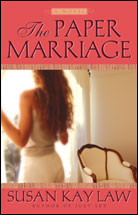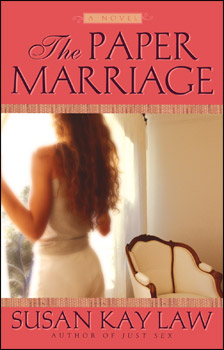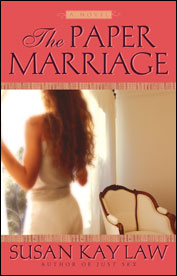
|
 |
 |
|
The life of Ann McCrary was turning out exactly as she'd imagined since she was a young girl. She was on the verge of getting everything she ever wanted until a shocking tragedy left her young and vibrant husband in an irreversible coma. Now, twelve years later, Ann is still in stasis herself, unable to move forward, unable to move back. Until a famous ex-ballplayer and the troubled teenage daughter he barely knows move in next door, jolting her out of her frozen state.
|
|
 |
||||||||||||||
Well, well, well, Tom thought when he opened his door. Guess there were a few hot ones in the neighborhood after all. A long, rangey body and the legs to go with it, nicely shown off in baggy running shorts. Streaky brown hair with a definite curl, pulled carelessly back. Her T-shirt was too loose for him to tell what was underneath – too bad, that. No makeup at all, an angular, serious face. He was rather proud of himself that he’d finally gotten to the point that he could appreciate a woman like her. He’d been dazzled by flash early on, paid the price for it, and had been immensely relieved when he’d grown out of it. She had a plate in one hand, a puzzled expression on her face. “I –“ She wrinkled her brow. Trying to place him, he figured, and glanced at his watch. She shook her head. “Oh, sorry. Well. I’m Ann McCrary. Next door.” She poked the plate in that direction, the neatly kept shingled house - he’d worried about who lived next door, in a place that well-groomed. The last thing he wanted for a neighbor was the kind of guy who measured his dick by who had the best grass. Living next to a guy that was a risk you took by moving into a neighborhood like this. But whoever the guy was next door, he obviously had better things to do than fertilize, if this was his wife. “I . . .” She frowned again. “Have we met?” “Don’t think so.” “Huh.” She stuck the plate in his directions. “I brought you brownies.” “Brownies.” Oh, yeah. That’s what you did out here, wasn’t it? Bring offerings of food to new neighbors. The suburbs. Goddammit, he was living in the suburbs, even if it was just barely. He peeled back the tinfoil. They were still warm, as dark brown as strong espresso, and a chunk of chocolate oozed from one. He picked one up and chomped half in one gulp. Jeez. Maybe the suburbs weren’t so bad after all. He chewed, swallowed. “You make this yourself?” “I –“ She was still trying to puzzle it out, looking him up and down, a faint frown marking her brow. “Of course I made it,” she said, offended. Guess you didn’t question a lady’s brownies. “From scratch?” “Yes.” Her frown deepened. “Where are you from?” “South Dakota.” “Oh. Couldn’t be that, then. Do you go to St. Joe’s?” Church. She went to church. Was he supposed to go to church now? He hadn’t set foot in one since his mother’s funeral. He’d forgotten that people – save Big Al Thompson, their holy-roller left fielder who was constantly trying to convert the rest of the locker room, and who was about as annoying a man as he’d ever played with – went to church. “Nope.” He swallowed the rest of the brownie. Yup, it was really that good. He glanced at her left hand, found the tell-tale glint of platinum, and sighed. Of course she was married. Legs and homemade brownies; single was out of the question. “Where do you work?” “What’s this? You’re the advance guard sent to find out all about me and report back to the neighbors?” She flushed immediately, red as a teenager caught parking. “I’m sorry, I . . . you just look so very familiar.” “No, you don’t, I –“ Her expression cleared. “You’re the man in black!” He looked down, making a show of checking his clothes. T-shirt, jeans, sneakers. “Guess I am.” The press had liked that one, the man in black thing. Dubbed him that right after he’d been called up to the bigs, a tall skinny twenty-year old with a fastball that approached 100 mph. He’d spent two years in the pen, made starter early in ’91. In the World Series against Atlanta, he’d given up only two runs in 20 innings. He’d another five good years before he blew out his shoulder. Four All-Star appearances, one Cy Young. And then a lousy two years, trying to come back. Washed up by thirty. “No . . . you know. What was your real name? Nash. Tom Nash.” His wiped brownie crumbs off on his thigh and checked his watch. “Got it in one.” It had taken two minutes, forty-five seconds to recognize him this time, which was a full minute longer than average. He stuck out his hand. “Tom Nash.” “Oh, shoot. My manners.” She put out her own. “Ann McCrary. I live next door.” She peered behind him. “Are your . . . parents here?” “Now there’s something I haven’t heard in a while. Don’t I look old enough to buy a place on my own?” “Sorry.” Ann knew she was gawking, couldn’t seem to stop. She remembered him now. They’d actually been at one of the games he’d pitched during the playoffs that year, and she’d watched the rest on TV. He was taller than everyone else on the field; cold, pale blue eyes glowering beneath the brim of his cap; whipping the ball at the plate as if it was hurled from a slingshot. The press loved him, young and handsome enough to be on a magazine cover, a relentless monster on the mound but a Midwestern kid made good off of it. If Ann had ever thought about it, she would have been sure that she was not the type of person susceptible to being star-struck. She never read Us except at the salon, couldn’t have picked Paris Hilton out from a lineup of blondes. But she was just so surprised to see him here. And she couldn’t reconcile it, a millionaire jock – no longer that young, but still tall and gorgeous and mysteriously sexy – showing up next door. “Your . . . wife?” Too nosy. But the questions kept popping out, because he didn’t belong here. He belonged someplace hip and sleek, with girls that looked like they’d walked out of a music video on each arm. Not in Mrs. Hillerman’s old house, with its rosebushes on either side of the brick steps and windowboxes already planted with petunias. “Don’t have one of those.” He didn’t seemed disturbed by her questions, just leaned against the doorjamb and broke off another corner of brownie. She supposed he was used to questions, and to open-mouthed women staring at him. What was he doing here? She wouldn’t have been any more surprised if the president had opened the door. Maybe less; politicians liked to pretend they were common people. Tom Nash had never been common, at least not since somebody figured out just how fast he could throw a baseball. “I’ll just go home now,” she said, and turned to scurry away and leave the poor man alone. “Hey.” She turned at his call. “Are there kids around here?” he asked. Kids. Why would he care about kids? “Are you a pervert?” The words came out before she thought about it. Shit. But what did it matter, she thought a second later? If he was a pervert – and that made more sense than anything else, about why somebody like him would move in next door - he’d be on notice that she’d be watching. That everybody’d be watching, though that would have happened anyway, and he’d have to be a complete idiot not to realize that. Tom Nash didn’t just slip into a neighborhood unnoticed.
But he laughed, so hard he had to juggle the brownies. He held up a hand to hold her in place while he gathered enough air to talk. “Do I look like a pervert?” And now he was making fun of her. Heck, she was pretty sure he’d once been one of People’s 50-most-beautifuls. “Of course not. Which is kind of the point, isn’t it? If a pervert looked like a pervert, he’d never get close to anybody.” “He? It’s always a he?” Okay, so now he was making her out to be a sexist. And there was no way she was getting out of this looking good. “My dog needs me,” she said – coward! - and turned for home. “Hey! I’m not a pervert!” He was loud enough to have her looking up and down to the street, to see if anybody was watching. And laughing. “I’ve got a daughter. She’s coming to live with me for the summer, and I was hoping . . . well, I want her to like it here.” “Oh. A daughter.” That made more sense. She still couldn’t put him together with this place, but at least there was a reason. “Of course, there are kids. This place is kid central.” The pang was so mild she barely noticed it. It had been stronger once, enough that sometimes, on gorgeous summer days, she’d had to stay inside rather than see all those beautiful children. But the hurt had gotten scabbed over, or just lost among all the other scars. “Mortimers, over there. They have five-year-old twins, a girl and a boy, and a three-year-old. Andersons, down the block, have school age kids . . . first and third. I think.” She frowned. There were always kids running around, bright-eyed, happy, enough of them that she couldn’t always keep them straight. It hardly even hurt anymore. But he was shaking his head. “No, no, she’s sixteen. I don’t know what to do with her. What do sixteen year old girls do?” “Well, assuming they’re anything like what my friends and I were when we were sixteen, you probably don’t want to know.” He looked stricken. Worried, as if it hadn’t occurred to him that she might get in trouble. “What does she like?” Ann asked. “She likes . . .” He stopped, frowning fiercely. He used to glare at batters like that, right before he unleashed that fastball. She was half surprised they hadn’t just dropped their bat and taken the strikes, because there was no way they were hitting him when he was in his prime, anyway. “Aw, hell, I don’t know.” “Hmm.” A divorced dad, then, who didn’t know his daughter well enough to know what she’d like. Ann understood that, didn’t she? A father who couldn’t be bothered? She wondered what had possessed him to bring his daughter here for the summer. All she’d gotten since her father left had been postcards. Certainly no invitations. “I should know, shouldn’t I?” he said glumly. “I used to know. When she was little, it was easy. Send her a doll, a book, whatever she asked for. But then she got older, and she –“ Oh boy, Ann thought. He was in trouble. The girl wasn’t even here, and it was obvious the man was in trouble. Which he no doubt deserved every bit of. She didn’t have much sympathy for men who thought fatherhood meant shooting out swimmers and maybe signing a check now and then. She only hoped the girl wouldn’t have to suffer for it. “Teenagers. Right. Well, right on your other side –“ she nodded in that direction, at the yellow stucco two-story with a big silver maple in the front – “Kozlaks, there. They have a boy, I’m pretty sure he’s sixteen.” “No boys!” 
“Ooo-kay,” she said, thinking: man, you have no idea, do you? “I’m sure there are some,” she went on. “Enjoy the brownies.” She could hear Cleo whining on the other side of the fence, unhappy to have been left behind, and she seized on the excuse. “Have to go. And good luck!” You’re gonna need it.
End of Excerpt. Like it? Order it! Get notified of all future book releases. (This is spam free.)
The idea for this story simmered for years, from back when I was writing historicals, long before the tragedy of the Terri Schiavo story made it current news. When Ann McCrary took her wedding vows, she had no idea just how worse "for better or worse" could get. Now she is married both legally and emotionally, but her husband is no longer the man she loved and made that promise to and she's been frozen in place for twelve years. I wanted to write about family, both the one we are born into and the one we choose for ourselves, and what we owe the people that we love. But, as always, books take on a life of their own when I write them. I knew I'd be writing about the relationship between Ann and her mother, but I had no idea that her bond with her mother-in-law would be every bit as important. Also, while I knew the neighbor that would finally jolt her out of her frozen state would be a central character (and what a lovely character he is!), I didn't expect his daughter, Mer, would be such a strong force on the page. I loved writing her; she is so tough, and so very wounded. Which only goes to show you that, no matter how much I think about a book, I never could follow a plan . . . .
|
  |
||||||||||||||||
|
|
|



